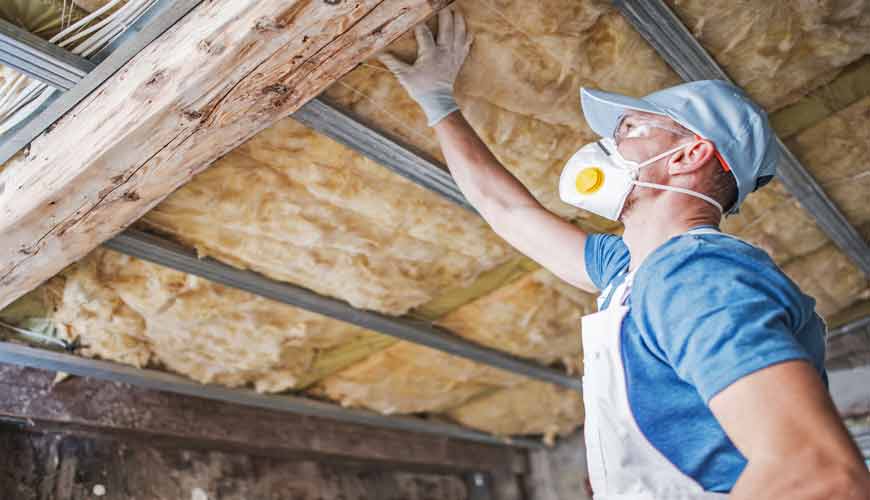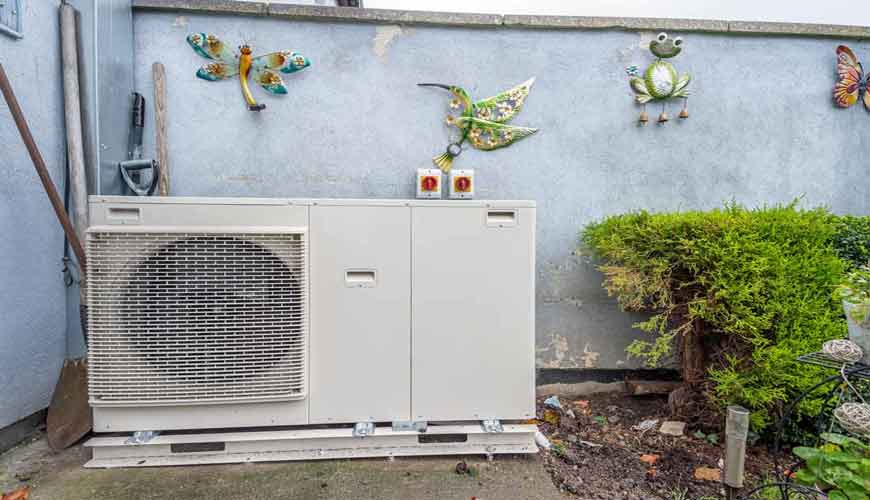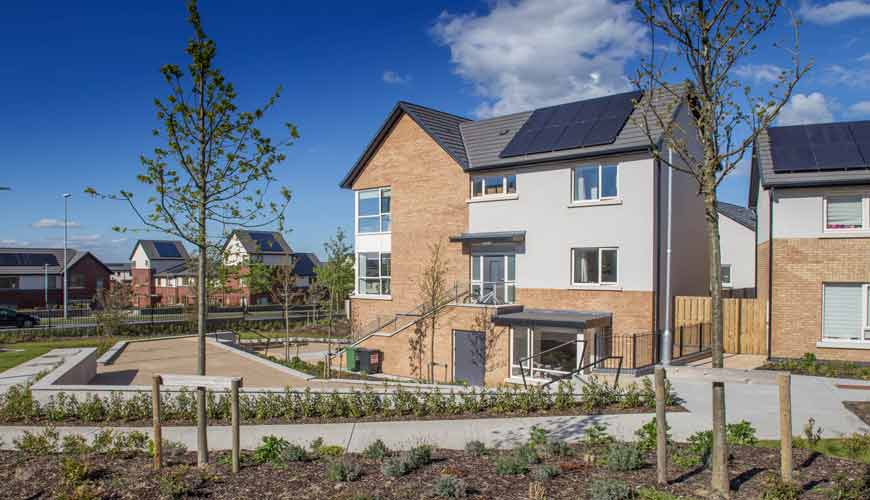Insulation
A well-insulated house will keep the heat you make. A badly insulated home may lose 30% of your heat through the roof and a further 30% through the walls, with 10% through windows and doors. Insulating gives us a more comfortable home, with a more consistent temperature.

You can choose to insulate your attic, walls, and windows/doors.
- Attic Insulation: This involves laying insulation along the attic floor or along a flat roof, and around the water tank and pipes, while proper ventilation will be installed to reduce the risk of condensation.
- Wall Insulation: Walls can take three types of insulation. Cavity wall insulation fills the inside of external cavity walls. If this is not possible, external wall insulation wraps the outside of your home, while internal wall insulation wraps the inside.
- Windows & Doors: Once the attic and walls are insulated, the next step is to upgrade your windows and doors, as these will be the new avenue for heat loss out of your home.
Insulating is not a difficult process, but it is important to work with registered consultants and contractors that meet the necessary standards. Each home is different and will need its own solution.
Grants are also available from the Sustainable Energy Authority of Ireland (SEAI).
Heat Pumps
When our homes are well insulated, it might be time to consider a heat pump. There are different types of heat pumps but the most common in Ireland is an air-to-water heat pump.
An air-to-water heat pump takes energy contained in the air outside your home and uses an electrically powered compressor to turn it into a higher heat suitable for your radiators and water. Radiators will heat to a lower, more consistent temperature, so it is important your house is well insulated first.

For every 1 unit of electricity used, heat pumps produce 3 to 4 units of heat, meaning they use low amounts of energy for what you get. As the electricity grid becomes less reliant on fossil fuels, the electricity used by heat pumps becomes more and more sustainable, and your contribution to climate change reduces.
Grants are also available from the Sustainable Energy Authority of Ireland (SEAI).
Solar Panels
Solar panels are an increasingly common site on the roofs of homes across Ireland. There are two types of solar panels: Solar Thermal Collectors and Solar Photovoltaic (PV). Both take the sun’s light and convert it to energy we can use.

Solar Thermal Collectors turn the sun's energy into hot water and will typically provide up to about 60% of your annual hot water needs.
Solar PVs generate electricity when exposed to the sun’s light.
Solar PVs will cover a portion of the electricity needs of your home, and savings depend on certain factors. Your home’s position in relation to the sun and roof angle will influence the amount of savings available, with south facing optimal, as will what portion of the day you typically spend at home.
Grants are also available from the Sustainable Energy Authority of Ireland (SEAI).
Helping with the Cost
The Sustainable Energy Authority of Ireland (SEAI) work with householders, businesses, communities, and government to create a cleaner energy future. The SEAI offers a range of grants to homeowners, including help with insulation, heat pumps, solar panels, and technical advice. A new one-stop-shop service offers homeowners all the services required for a complete home energy upgrade. Grants are also available for one-off measures.
Visit www.seai.ie for more information on what grants are available.

